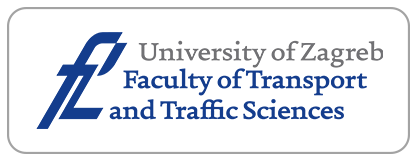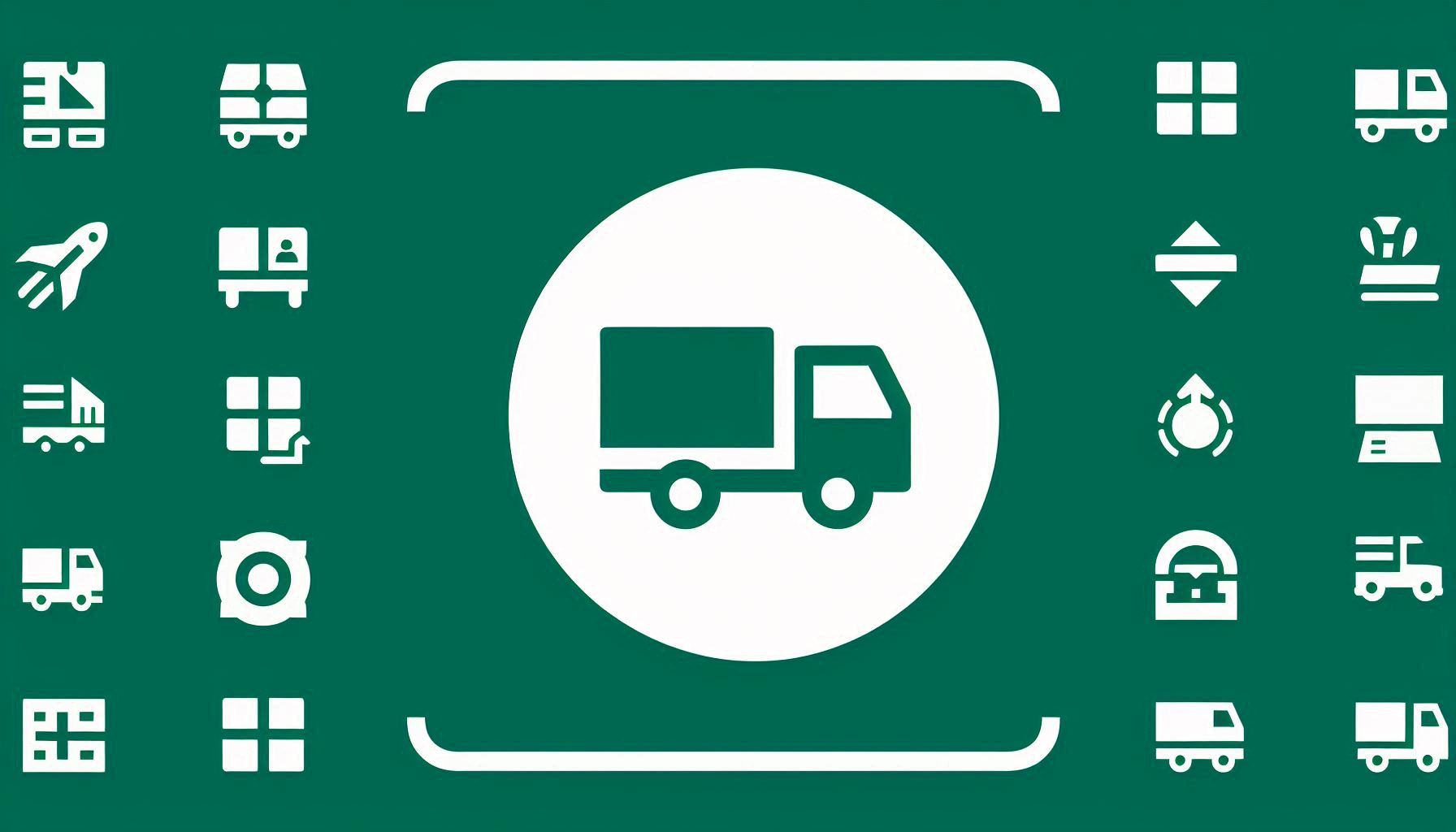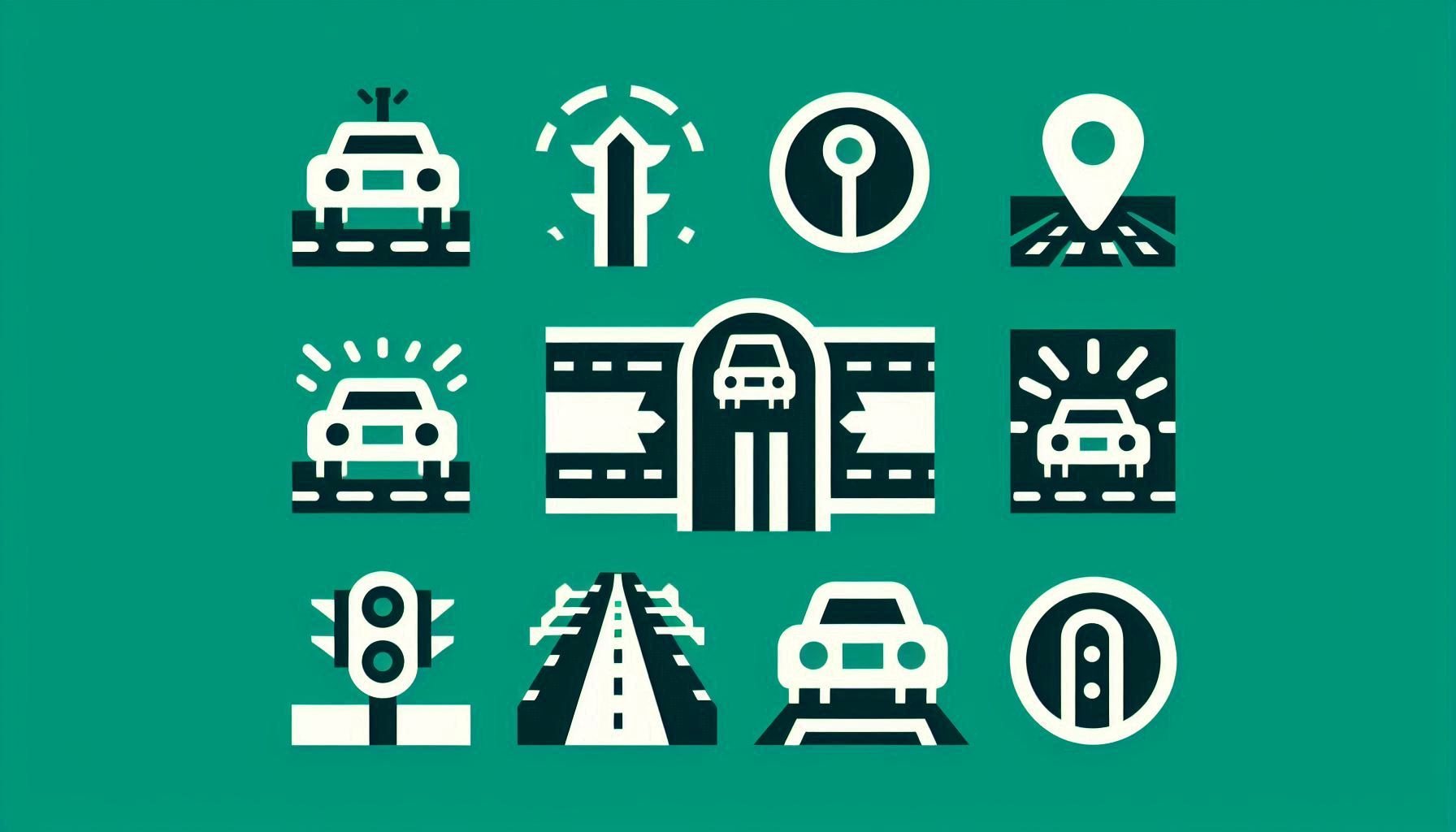A Review of Artificial Intelligence Applications in Cold Chain and Reverse Logistics

Downloads
The development of artificial intelligence (AI) is profoundly transforming modern supply chains, particularly cold chains in dairy, pharmaceutical and perishable goods industries. By leveraging technologies such as the Internet of Things (IoT), blockchain and predictive maintenance, logistics operations can achieve greater efficiency, quality and sustainability. The dairy sector, with its stringent temperature controls and rapid delivery requirements, is especially well-suited for AI integration. Simultaneously, growing environmental awareness is accelerating the adoption of AI in reverse logistics to support the transition to a circular economy. In this study, we examine the technological foundations and baseline capabilities of AI in logistics, explore how AI supports sustainability-driven reverse logistics and assess its potential to enable the integrated management of cold and general supply chains. To that end, we applied a systematic literature review methodology involving structured database searches, screening and analysis of 95 scientific articles published between 2010 and 2024. The articles were categorised into three domains: AI in logistics, AI in reverse logistics and the integrated management of cold and general supply chains. The findings highlight the need for further research to develop AI-based solutions for predictive maintenance, temperature monitoring, demand forecasting and return management. Such advancements aim to improve the resilience and efficiency of cold chain and reverse logistics systems while enabling integrated, sustainable supply chain management.
Downloads
Ferreira B, Reis J. A systematic literature review on the application of automation in logistics. Logistics. 2023;7(4):80. DOI:10.3390/logistics7040080.
Schlüter M, et al. AI-enhanced identification, inspection and sorting for reverse logistics in remanufacturing. Procedia CIRP. 2021;98:300–305. DOI:10.1016/j.procir.2021.01.107.
Gayialis SP, Kechagias EP, Konstantakopoulos GD, Papadopoulos GA. A predictive maintenance system for reverse supply chain operations. Logistics. 2022;6(1):4. DOI:10.3390/logistics6010004.
Krstić M, et al. Applicability of Industry 4.0 technologies in the reverse logistics: A circular economy approach based on comprehensive distance-based ranking (COBRA) method. Sustainability. 2022;14(9):5632. DOI:10.3390/su14095632.
Hamilton JR, Maxwell SJ, Ali SA, Tee S. Adding external artificial intelligence (AI) into internal firm-wide smart dynamic warehousing solutions. Sustainability. 2024;16(10):3908. DOI:10.3390/su16103908.
Chen W, et al. Artificial intelligence in logistics optimization with sustainable criteria: A review. Sustainability. 2024;16(21):9145. DOI:10.3390/su16219145.
Min H. Smart warehousing as a wave of the future. Logistics. 2023;7(2):30. DOI:10.3390/logistics7020030.
Chiaraviglio A, Grimaldi S, Zenezini G, Rafele C. Overall warehouse effectiveness (OWE): A new integrated performance indicator for warehouse operations. Logistics. 2025;9(1):7. DOI:10.3390/logistics9010007.
Epe M, Azmat M, Islam DMZ, Khalid R. Use of smart glasses for boosting warehouse efficiency: Implications for change management. Logistics. 2024;8(4):106. DOI:10.3390/logistics8040106.
Bright AG, Ponis ST. Introducing gamification in the AR-enhanced order picking process: A proposed approach. Logistics. 2021;5(1):14. DOI:10.3390/logistics5010014.
Minashkina D, Happonen A. Warehouse management systems for social and environmental sustainability: A systematic literature review and bibliometric analysis. Logistics. 2023;7(3):40. DOI:10.3390/logistics7030040.
Lu Z, Wang P, Zhang X. Research on irregular warehouse layout based on optimised genetic algorithm. Promet – Traffic&Transportation. 2024;36(2):249–260. DOI:10.7307/ptt.v36i2.326.
Colabianchi S, et al. MARLIN method: Enhancing warehouse resilience in response to disruptions. Logistics. 2023;7(4):95. DOI:10.3390/logistics7040095.
Tikwayo LN, Mathaba TND. Applications of Industry 4.0 technologies in warehouse management: A systematic literature review. Logistics. 2023;7(2):24. DOI:10.3390/logistics7020024.
Coruzzolo AM, et al. Order picking problem: A model for the joint optimisation of order batching, batch assignment sequencing, and picking routing. Logistics. 2023;7(3):61. DOI:10.3390/logistics7030061.
Görener A. Picker routing and batching in multi-block parallel-aisle warehouses: An application from the logistics service provider. Logistics. 2025;9(1):40. DOI:10.3390/logistics9010040.
Reis J. Exploring applications and practical examples by streamlining material requirements planning (MRP) with Python. Logistics. 2023;7(4):91. DOI:10.3390/logistics7040091.
Zhang X, Wang Y, Zhang D. Location-routing optimization for two-echelon cold chain logistics of front warehouses based on a hybrid ant colony algorithm. Mathematics. 2024;12:1851. DOI:10.3390/math12121851.
Rajaraman M, Bannerman K, Shimada K. Inventory tracking for unstructured environments via probabilistic reasoning. Logistics. 2020;4(3):16. DOI:10.3390/logistics4030016.
Rahman MA, Kirby ED. The lean advantage: Transforming e-commerce warehouse operations for competitive success. Logistics. 2024;8(4):129. DOI:10.3390/logistics8040129.
Klundt E, Towers N, Bechkoum K. Lean and agile supply strategies in distribution centres to deliver value-added services (VAS). Logistics. 2024;8(3):67. DOI:10.3390/logistics8030067.
Xi J, Geng N. Research on the location of front-loading warehouses based on the reverse logistics of fresh agricultural products. Promet – Traffic&Transportation. 2024;36(6):1078–1102. DOI:10.7307/ptt.v36i6.721.
de Mattos CA, Correia FC, Kissimoto KO. Artificial intelligence capabilities for demand planning process. Logistics. 2024;8(2):53. DOI:10.3390/logistics8020053.
Romagnoli S, Tarabu’ C, Maleki Vishkaei B, De Giovanni P. The impact of digital technologies and sustainable practices on circular supply chain management. Logistics. 2023;7(1):1. DOI:10.3390/logistics7010001.
Harsanto B, et al. Digital technology 4.0 on halal supply chain: A systematic review. Logistics. 2024;8(1):21. DOI:10.3390/logistics8010021.
Aylak BL. SustAI-SCM: intelligent supply chain process automation with agentic AI for sustainability and cost efficiency. Sustainability. 2025;17:2453. DOI:10.3390/su17062453.
Ferraro S, Cantini A, Leoni L, De Carlo F. Sustainable logistics 4.0: a study on selecting the best technology for internal material handling. Sustainability. 2023;15:7067. DOI:10.3390/su15097067.
Haji M, Kerbache L, Muhammad M, Al-Ansari T. Roles of technology in improving perishable food supply chains. Logistics. 2020;4(4):33. DOI:10.3390/logistics4040033.
Jagtap S, et al. Food Logistics 4.0: Opportunities and challenges. Logistics. 2021;5(1):2. DOI:10.3390/logistics5010002.
Zengin M, Amin SH, Zhang G. Closing the gap: A comprehensive review of the literature on closed-loop supply chains. Logistics. 2024;8:54. DOI:10.3390/logistics8020054.
Abdelhamid MM, Sliman L, Ben Djemaa R. AI-enhanced blockchain for scalable IoT-based supply chain. Logistics. 2024;8(4):109. DOI:10.3390/logistics8040109.
Hellani H, Sliman L, Samhat AE, Exposito E. On blockchain integration with supply chain: overview on data transparency. Logistics. 2021;5(3):46. DOI:10.3390/logistics5030046.
Ponis ST, Efthymiou OK. Cloud and IoT applications in material handling automation and intralogistics. Logistics. 2020;4(3):22. DOI:10.3390/logistics4030022.
Khan N, Solvang WD, Yu H. Industrial Internet of Things (IIoT) and other Industry 4.0 technologies in spare parts warehousing in the oil and gas industry: a systematic literature review. Logistics. 2024;8(1):16. DOI:10.3390/logistics8010016.
Alkhodair M, Alkhudhayr H. Harnessing Industry 4.0 for SMEs: advancing smart manufacturing and logistics for sustainable supply chains. Sustainability. 2025;17:813. DOI:10.3390/su17030813.
Azmat M, et al. Future outlook of highway operations with implementation of innovative technologies like AV, CV, IoT and Big Data. Logistics. 2019;3(2):15. DOI:10.3390/logistics3020015.
Paraskevas A, Madas M, Zeimpekis V, Fouskas K. Smart ports in Industry 4.0: A systematic literature review. Logistics. 2024;8:28. DOI:10.3390/logistics8010028.
Mashayekhy Y, Babaei A, Yuan XM, Xue A. Impact of Internet of Things (IoT) on inventory management: a literature survey. Logistics. 2022;6:33. DOI:10.3390/logistics6020033.
Lambrechts W, Klaver JS, Koudijzer L, Semeijn J. Human factors influencing the implementation of cobots in high volume distribution centres. Logistics. 2021;5:32. DOI:10.3390/logistics5020032.
Zajac M, Rožić T, Swieboda‑Kutera J, Starčević M. Digital planning tools in intermodal transport: Evidence from Poland. Logistics. 2025;9(3):94‑109. DOI:10.3390/logistics9030094.
Kamal Idrissi Z, Lachgar M, Hrimech H. Blockchain, IoT and AI in logistics and transportation: A systematic review. Transport Economics and Management. 2024;2:275–285. DOI:10.1016/j.team.2024.09.002.
Bhowmik O, et al. Application of artificial intelligence in reverse logistics: A bibliometric and network analysis. Supply Chain Analytics. 2024;7:100076. DOI:10.1016/j.sca.2024.100076.
Khalilzadeh M, Antucheviciene J, Božanić D. A bi-objective model for the multi-period inventory-based reverse logistics network: a case study from an automobile component distribution network. Systems. 2024;12:299. DOI:10.3390/systems12080299.
Vahdat V, Vahdatzad MA. Accelerated Benders’ decomposition for integrated forward/reverse logistics network design under uncertainty. Logistics. 2017;1(2):11. DOI:10.3390/logistics1020011.
Wang YL, Liao CN. Assessment of sustainable reverse logistic provider using the fuzzy TOPSIS and MSGP framework in food industry. Sustainability. 2023;15:4305. DOI:10.3390/su15054305.
Desticioglu B, Calipinar H, Ozyoruk B, Koc E. Model for reverse logistic problem of recycling under stochastic demand. Sustainability. 2022;14:4640. DOI:10.3390/su14084640.
Song S, Tian Y, Zhou D. Reverse logistics network design and simulation for automatic teller machines based on carbon emission and economic benefits: a study of the Anhui Province ATMs industry. Sustainability. 2021;13:11373. DOI:10.3390/su132011373.
Yu H, Sun X. Uncertain remanufacturing reverse logistics network design in industry 5.0: Opportunities and challenges of digitalization. Eng Appl Artif Intell. 2024;133:108578. DOI:10.1016/j.engappai.2024.108578.
Chen G, Chen J. Reverse logistics network model of dual-channel recycling boxes based on genetic algorithm optimization: A multi-objective and uncertain environment perspective. Sustainability. 2023;15(5):4408. DOI:10.3390/su15054408.
Anon SY, Amin SH, Baki F. Third-party reverse logistics selection: A literature review. Logistics. 2024;8(2):35. DOI:10.3390/logistics8020035.
Li R, Chen X. Reverse logistics network design under disruption risk for third-party logistics providers. Sustainability. 2022;14(22):14936. DOI:10.3390/su142214936.
Dabo AAA, Hosseinian-Far A. An integrated methodology for enhancing reverse logistics flows and networks in Industry 5.0. Logistics. 2023;7(4):97. DOI:10.3390/logistics7040097.
Mo DY, Ma CYT, Ho DCK, Wang Y. Design of a reverse logistics system with Internet of Things for service parts management. Sustainability. 2022;14(19):12013. DOI:10.3390/su141912013.
Abbasi S, et al. Designing a green forward and reverse logistics network with an IoT approach considering backup suppliers and special disposal for epidemics management. Results Eng. 2025;17:104770. DOI:10.1016/j.rineng.2025.104770.
Schlüter M, et al. Green incremental learning: Energy efficient ramp-up for AI-enhanced part recognition in reverse logistics. Procedia CIRP. 2023;116:414–9. DOI:10.1016/j.procir.2023.02.070.
Alarcón F, Cortés-Pellicer P, Pérez-Perales D, Mengual-Recuerda A. A reference model of reverse logistics process for improving sustainability in the supply chain. Sustainability. 2021;13(18):10383. DOI:10.3390/su131810383.
Krstić M, Agnusdei GP, Miglietta PP, Tadić S. Evaluation of the smart reverse logistics development scenarios using a novel MCDM model. Cleaner Environ Syst. 2022;7:100099. DOI:10.1016/j.cesys.2022.100099.
Starostka-Patyk M. The use of information systems to support the management of reverse logistics processes. Procedia Comput Sci. 2021;192:2586–95. DOI:10.1016/j.procs.2021.09.028.
Nunes DRdL, et al. Approaches to performance assessment in reverse supply chains: A systematic literature review. Logistics. 2023;7(3):36. DOI:10.3390/logistics7030036.
Ritola I, Krikke H, Caniëls MCJ. Learning from returned products in a closed loop supply chain: A systematic literature review. Logistics. 2020;4(2):7. DOI:10.3390/logistics4020007.
Wijewickrama MKCS, Chileshe N, Rameezdeen R, Ochoa JJ. Information processing for quality assurance in reverse logistics supply chains: An organizational information processing theory perspective. Sustainability. 2022;14(9):5493. DOI:10.3390/su14095493.
Sonar H, et al. Navigating barriers to reverse logistics adoption in circular economy: An integrated approach for sustainable development. Cleaner Logist Supply Chain. 2024;12:100165. DOI:10.1016/j.clscn.2024.100165.
Rubio S, Jiménez-Parra B, Chamorro-Mera A, Miranda FJ. Reverse logistics and urban logistics: Making a link. Sustainability. 2019;11(20):5684. DOI:10.3390/su11205684.
Nunes LJR. Reverse logistics as a catalyst for decarbonizing forest products supply chains. Logistics. 2025;9(1):17. DOI:10.3390/logistics9010017.
Akinbamini E, et al. Critical analysis of technologies enhancing supply chain collaboration in the food industry: A Nigerian survey. Logistics. 2025;9(1):8. DOI:10.3390/logistics9010008.
Makaleng MSM, Hove-Sibanda P. Reverse logistics strategies and their effect on the competitiveness of fast-moving consumer goods firms in South Africa. Logistics. 2022;6(3):56. DOI:10.3390/logistics6030056.
Briatore F, et al. Exploring Industry 4.0’s role in sustainable supply chains: Perspectives from a bibliometric review. Logistics. 2025;9(1):26. DOI:10.3390/logistics9010026.
Ren T, Ren J, Matellini DB, Ouyang W. A comprehensive review of modern cold chain shipping solutions. Sustainability. 2022;14(22):14746. DOI:10.3390/su142214746.
Althabatah A, Yaqot M, Menezes B, Kerbache L. Transformative procurement trends: Integrating Industry 4.0 technologies for enhanced procurement processes. Logistics. 2023;7(3):63. DOI:10.3390/logistics7030063.
Prakash G, Sathishkumar V, Kumar VB. RFID based mobile cold chain management system for warehousing. Procedia Eng. 2012;38:964–9. DOI:10.1016/j.proeng.2012.06.122.
Mustafa MFMS, Navaranjan N, Demirovic A. Food cold chain logistics and management: A review of current development and emerging trends. J Agric Food Res. 2024;18:101343. DOI:10.1016/j.jafr.2024.101343.
McLay A, et al. Practices to improve the sustainability of Australian cold storage facilities. Sustainability. 2024;16(11):4584. DOI:10.3390/su16114584.
Wang Y, Wang Y, Leng J. A study on the vehicle routing planning method for fresh food distribution. Appl Sci. 2024;14(22):10499. DOI:10.3390/app142210499.
Bottani E, Casella G, Nobili M, Tebaldi L. An analytic model for estimating the economic and environmental impact of food cold supply chain. Sustainability. 2022;14(8):4771. DOI:10.3390/su14084771.
Ali SS, Jalil SA, Kamal M, Rameshwar R. Amplifying swift-trust, collaboration, and teamwork in warehouse management through blockchain-enabled technology. Supply Chain Anal. 2024;8:100089. DOI:10.1016/j.sca.2024.100089.
Ramingwong S, Sopadang A, Tippayawong KY, Jintana J. Factory logistics improvement: A case study analysis of companies in Northern Thailand, 2022–2024. Logistics. 2024;8(3):88. DOI:10.3390/logistics8030088.
de Oliveira AV, et al. Improvement of the logistics flows in the receiving process of a warehouse. Logistics. 2022;6(1):22. DOI:10.3390/logistics6010022.
Serrano-Torres GJ, López-Naranjo AL, Larrea-Cuadrado PL, Mazón-Fierro G. Transformation of the dairy supply chain through artificial intelligence: A systematic review. Sustainability. 2025;17(3):982. DOI:10.3390/su17030982.
Lu X, Taghipour A. A review of supply chain digitalization and emerging research paradigms. Logistics. 2025;9(2):47. DOI:10.3390/logistics9020047.
Crooks K, Haddud A. Using radio frequency identification (RFID) technology in the pharmaceutical supply chain: The impact on competitive advantage. Sustainability. 2025;17(4):1378. DOI:10.3390/su17041378.
Acerce A, Denizhan B. Application of the non-dominated sorting genetic algorithm II (NSGA-II) in a two-echelon cold supply chain. Systems. 2025;13(3):206. DOI:10.3390/systems13030206.
Iyer P, Robb D. Cold chain optimisation models: A systematic literature review. Comput Ind Eng. 2025;110972. DOI:10.1016/j.cie.2025.110972.
Haque S, Akbar D, Kinnear S, Rahman A. A scoping review of export supply chain efficiency frameworks for perishable horticultural products. Supply Chain Anal. 2025;10:100112. DOI:10.1016/j.sca.2025.100112.
Malik M, et al. Application of optimization techniques in the dairy supply chain: A systematic review. Logistics. 2022;6(4):74. DOI:10.3390/logistics6040074.
Mor RS, Bhardwaj A, Singh S. Integration of SWOT-AHP approach for measuring the critical factors of dairy supply chain. Logistics. 2019;3(1):9. DOI:10.3390/logistics3010009.
Zhang Q, Li H, Pei H, Liu N. Construction of a new robust dual-channel supply chain network with forward logistics and reverse logistics. Comput Ind Eng. 2025;204:111075. DOI:10.1016/j.cie.2025.111075.
Božić D, Živičnjak M, Stanković R, Ignjatić A. Impact of the product master data quality on the logistics process performance. Logistics. 2024;8(2):43. DOI:10.3390/logistics8020043.
Shi H, Zhang Q, Qin J. Cold chain logistics and joint distribution: A review of fresh logistics modes. Systems. 2024;12(7):264. DOI:10.3390/systems12070264.
Rejeb A, Rejeb K, Zrelli I. Analyzing barriers to Internet of Things (IoT) adoption in humanitarian logistics: An ISM–DEMATEL approach. Logistics. 2024;8(2):38. DOI:10.3390/logistics8020038.
Hangl J, Behrens VJ, Krause S. Barriers, drivers, and social considerations for AI adoption in supply chain management: A tertiary study. Logistics. 2022;6(3):63. DOI:10.3390/logistics6030063.
Jahangir S, Xie R, Iqbal A, Hussain M. The influence of sustainable human resource management practices on logistics agility: The mediating role of artificial intelligence. Sustainability. 2025;17(7):3099. DOI:10.3390/su17073099.
Mance D, Šekimić D, Debelić B. Croatia’s economic integration in EU’s regional supply chains: Panel data quantile regression. Logistics. 2025;9(2):48. DOI:10.3390/logistics9020048.
Pumpinyo S, Nitivattananon V. Investigation of barriers and factors affecting the reverse logistics of waste management practice: A case study in Thailand. Sustainability. 2014;6(10):7048–62. DOI:10.3390/su6107048.
Sharma S, et al. Sustainable innovations in the food industry through artificial intelligence and big data analytics. Logistics. 2021;5(4):66. DOI:10.3390/logistics5040066.
Jevinger Å, Olsson CM. Introducing an intelligent goods service framework. Logistics. 2021;5(3):54. DOI:10.3390/logistics5030054.
Copyright (c) 2025 Josip HABAZIN, Ivona BAJOR, Patricija BAJEC, Tomislav ROŽIĆ

This work is licensed under a Creative Commons Attribution-NonCommercial 4.0 International License.




















